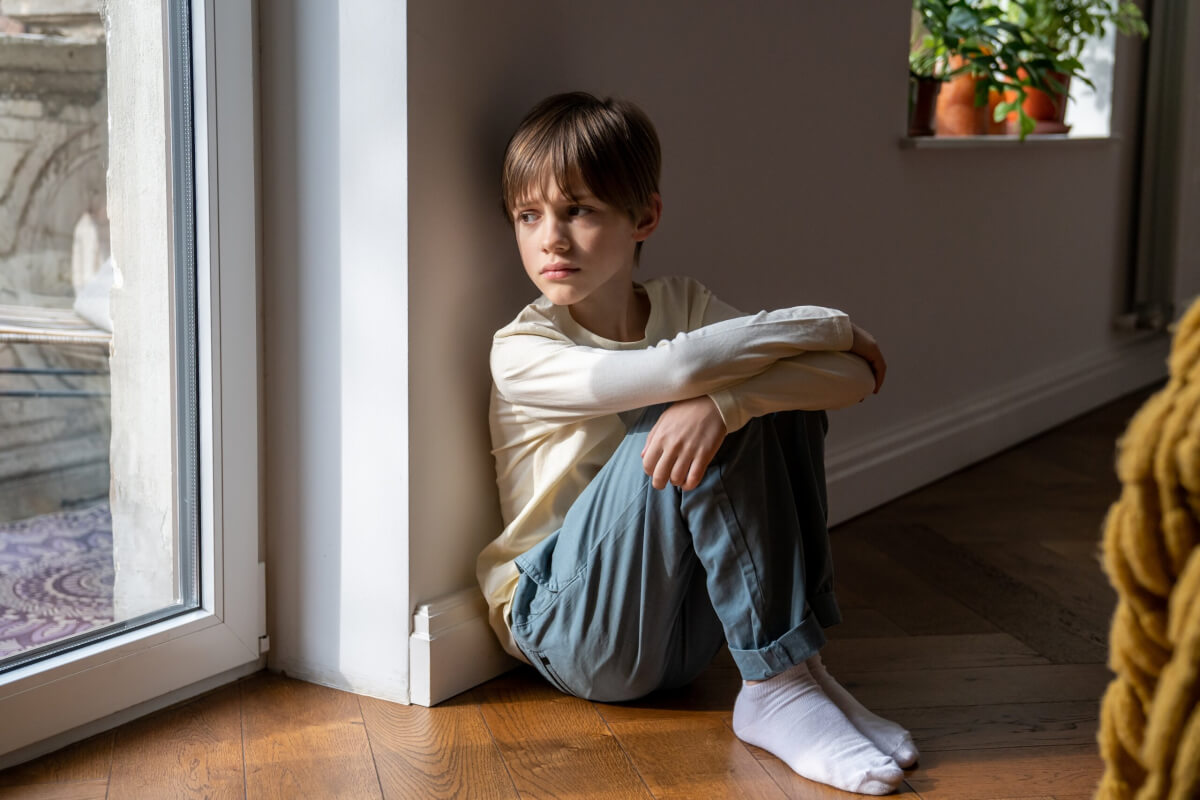The phrase “childhood trauma” is one that everyone likely defines at least a little bit differently. Perhaps your mind conjures up an image of a client lying on a couch in a therapist’s office to talk about their upbringing. Maybe your lived experience of abuse or neglect serves as your very own potent reminder of what childhood trauma means to you. But how can you tell whether your childhood experiences were the result of well-intended (but flawed) parents trying their best or trauma?
Despite the somewhat everyday use of the expression, the impact of childhood trauma is far from restricted to adolescence. In fact, a recent study reports that early childhood traumas can impact health outcomes decades later, even following you all the way into your golden years! With such long-lasting ramifications, it’s no surprise that so much of the current cultural moment is caught up in capturing the impact and importance of childhood trauma and, perhaps more importantly, what to do as an adult who has lived through it.
As science continues to demonstrate, the effects of childhood trauma are felt concretely throughout the entire lifespan. Another recent study reports on the unsurprising but notable link between childhood trauma and mental illness, including depression, anxiety, and substance use disorders. Even disorders that are not typically thought of as being influenced by one’s environment, such as psychosis, were found to be correlated to traumatic experiences of childhood.
To learn more about the markers of childhood trauma and its effects, we turned to top inventor-turned-author Michael Menard. As the second-born child of fourteen siblings growing up in poverty with an abusive father, Menard has spent the last several years of his life developing his understanding of childhood trauma and healing from his own complex experiences. His efforts culminate in his upcoming book, “The Kite That Couldn’t Fly: And Other May Avenue Stories,” set to hit shelves on June 1. To help navigate the often complicated world of childhood trauma, Menard shares several key insights with StudyFinds, identifying seven things that one may have thought were normal but were actually signs of trauma.

1. Dealing With Emotions Alone
When going through something difficult or experiencing negative emotions, it’s natural to lean on the people you’re close to. But if your instinct is to shoulder the burden alone, it may be a result of childhood trauma. As Menard explains, “I thought it was normal that we didn’t share emotional things in our family. We didn’t share things that were emotional, meaningful, or even painful. Everything was, ‘it’ll be okay.'”
If your emotions — regardless of whether they were negative or positive — were not welcomed in childhood, you might shy away from sharing your feelings with even your closest inner circle, fearing rejection or being burdensome to others. “As a young adult, I panicked when I got ignored. I was afraid that everyone was going to leave, so it was a very uncomfortable feeling,” says Menard. “I also felt that I would drive people away in relationships. I would only turn to others when I needed emotional support, never when things were good. When things were good, I could handle them myself. I didn’t need anybody.”
2. Food Insecurity
Shelter, clothes, and food are the basic survival necessities that all parents have a responsibility to provide for their children. However, some parents cannot provide all of these things to their children all the time. Sadly, food insecurity is widespread in America. Children who grow up in food-insecure households often do not even realize that there is anything unusual about their access to food. “I thought all kids had to worry about where their next meal was coming from or what it’s going to feel like to not have dinner that night, to wake up hungry,” Menard says.
Without any idea when their next meal is going to come, many people don’t even realize that their relationship with food growing up was as unhealthy as it was. As a child, it’s certainly difficult to understand concepts like poverty, neglect, and food insecurity — but it’s easy to understand an empty belly. As Menard puts it, “I didn’t feel pity. I just felt hungry.”
3. Parental Lessons
“As a child, all we know is our environment,” explains Menard. “So whatever that environment is, we consider it to be normal.”
To Menard and his siblings, the “normal” things taught by his father turned out not to be so normal after all. Whether they were illegal, immoral, or downright dangerous, it wasn’t until much later in life that Menard realized many of the lessons taught to him by his father were harmful.
“Lots of things taught to us by our father… you know, he taught the wrong things, but he was an excellent teacher,” adds Menard. “His job was to teach us how to steal, how to fight, how to be resilient, and I learned from that.”
4. Physical Violence
One of the most traumatic things a child can experience is physical abuse. But as Menard explains, brutality in the home was normalized entirely for him. Cruel and excessive corporal discipline was, as Menard puts it, “the type of punishment I just assumed everyone experienced — but they didn’t.”
Being on the receiving end of anger and aggressive behaviors in the home can cause children to repeat these same behaviors that they’ve learned from their parents.‘“My wife is a school teacher, and she could tell immediately through the aggressive behavior of even a first grader that there were multiple problems,” notes Menard. “It’s not about what’s wrong with you; it’s about what happened to you.”
5. Medical Neglect
For a child who doesn’t know any better, it can be frighteningly easy for dangerous, abnormal, or abusive behavior to become normalized. Sadly, rarely or never seeking medical treatment when needed becomes a normal experience for many children experiencing neglect or mistreatment. “We didn’t have any money to go to the doctor,” describes Menard. “So when we were sick, you just rode it out.”
This approach is best exemplified in a story Menard tells of his childhood, where his father failed to provide him with the medical care he needed. “I once dropped a glass bottle in the sandbox that broke and sliced across the top of my foot,” recalls Menard. “It was a horrible injury, but my dad sewed it with a needle and thread.” When operating with experiences like this as your baseline for normalcy, it’s easy to see why many children who grew up in abusive homes fail to seek proper medical care, even after leaving the abusive situation.
6. Unethical Behavior
Beyond the maladaptive ways of thinking, approaching emotion, navigating interpersonal relationships, or even dealing with their health, victims of childhood trauma are also often exposed to unethical behavior that is explicitly taught or endorsed by their parents. “Being taught by my dad to steal steaks from the restaurant I worked at when I was 12, that seemed quite okay,” says Menard. “It seemed quite normal. And it’s horrible.”
Just as many negative behaviors are learned, the reverse is also true. “Good self-care and self-discipline are taught,” notes Menard. “It goes down the drain when you experience emotional trauma.” Children who do not receive positive moral guidance from parents often lose out on important role models during their developmental years.
7. Loneliness And Isolation
Despite growing up in a crowded home as one of fourteen children, Menard often felt alone. “I just thought it was normal—being left out,” he says.
These feelings are not without consequences—they leave real, long-term scars on the children that experience them. Normalizing loneliness, isolation, and separation sets children up for failed interpersonal relationships with friends, romantic partners, and other family members. “We all need to trust, and we need to rely on people. But if you become an island and self-reliant, not depending on others, you become isolated,” Menard adds.
As Menard explains, “41 percent of all depression in the United States is caused by childhood trauma or comes from childhood trauma.” With so many growing up in homes where they feel invisible, unloved, or unwanted, it’s easy to understand why.

For more reflections on the effects of childhood trauma and healing from past wounds, look no further than Menard’s upcoming book, “The Kite That Couldn’t Fly: And Other May Avenue Stories.” Available now for pre-order ahead of its release on June 1, the book blends Menard’s own childhood experience with expert research on the topic of trauma. Bringing a surplus of intellect and heart to the often difficult conversation around abuse and neglect, it will surely be an insightful read for all.
Note: This article was not paid for nor sponsored. StudyFinds is not connected to nor partnered with any of the brands or people mentioned and receives no compensation for its recommendations.
